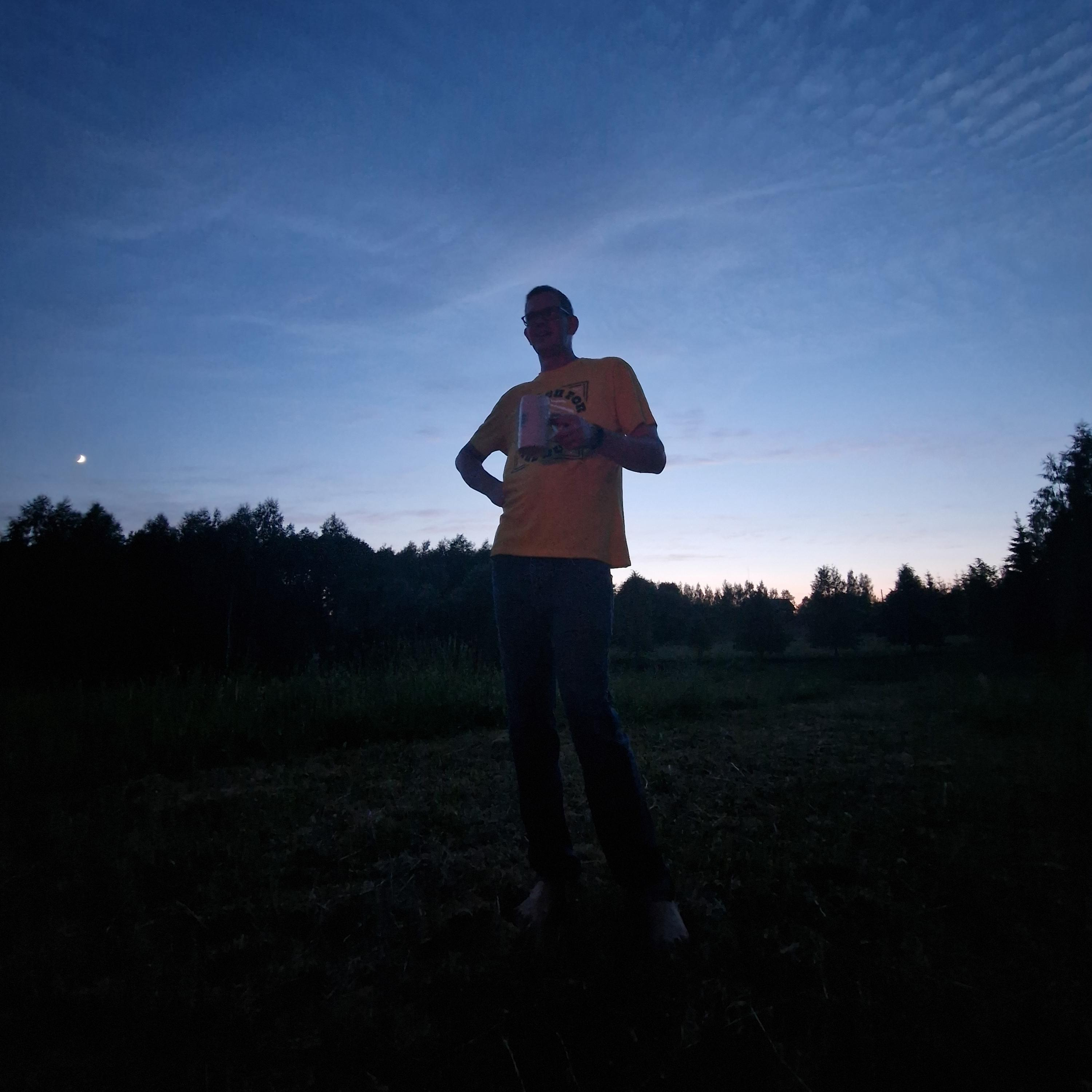Don’t post the entire article in the OP, please. You’ll end up getting C&D’s sent to your instance admins if publishers keep seeing this, because it’s - ironically enough in this context - copyright infringement.
Just post a snippet to stay within fair use. Don’t ruin Lemmy for all of us over something so silly.
What if one feeds the entire article into an LLM and has that rephrase it? Is it derivative then?
Ok, my bad
You didn’t create it so why the hell should you be able to copyright it?
That’s great! It means artists can continue to use AI art for projects they don’t intend to sell, and Hollywood, which already has too much power, still relies on others.
Artists can still make money and copyright their stuff. You just can’t use exclusively AI to create the images. Cleaning up an AI generated image count as artistic work. Color correct, add missing fingers, make the eyes point the same way, remove background monstrosities. It all adds up.
Unfortunately this also goes for Hollywood. They can generate the bulk of the work and have one guy do the editing and suddenly they own the edit.
The real losers in this are the people that generate images with no modifications and post it as is while pretending that they are doing art.
You are correct. Hollywood will simply change up a couple things and then use the assets.
However, I‘m still undecided about how I think about whether generating AI art should count as Human-generated or not. On one hand, people can spend hours if not days or week perfecting a prompt with different tools like ControlNet, different promptstyles and etc. On the other hand, somebody comes up to midjourney, asks for a picture of a dragon wearing a T-Shirt and immediately gets an image that looks pretty decent. It’s probably not exactly what they wanted, but close enough, right? AI gets you 90% there what you want, and the other 10% is the super-hard part that takes forever. Anyway, sorry for dumping my though process from this comment chain on here xD
Plenty of things that take weeks of work aren’t art.
Definitely. Ask anybody who finally evacuated the last thing they ate from Olive Garden!
Sorry, I am firmly in the camp where that isn’t art. The prompt writing can be a literary work but the result isn’t a work of art. You set up the environment that allowed the image to exist but you didnt make the image.
I remember this artist who used a jet engine to throw paint onto a big canvas. Was the resulting artwork made by the jet engine, based on what you’re saying?
I’m not confrontational. I just like the discussion. This whole topic is, well, fascinating.
But the treatment of photographs in the decision fits your description. The photographer sets up the environment that allowed the image to exist but it’s the camera that makes the image. The judge held that was protectable because the image represents the human’s mental conception of the scene. It’s not a ridiculous stretch to consider AI to be merely a camera for the prompt-writer’s mental conception. I am certain this argument has been or will be tried in court. The IP owner industry is far from done litigating this topic.
Hope: AI gets so good that people using a personal computer can produce full TV series with a single prompt, delare it uncopyrightable, and share the best results online as a alternative to corporate stuff.
Fear: IP law becomes so disconnected from the current situation that it prompts governments start over from scratch. New IP law is written by the corporations for the corporations, and any form of creativity is restricted and monetized.
What’s stopping someone from generating an AI script and then saying they wrote it and copyrighting it?
That would be a fraud on the copyright office. Nothing is “stopping” people from committing fraud other then it’s fraud and has legal repercussions if found out.
Like if AI generated it, who is going to complain if a human copyrights it?
This is what’s not computing in my head.
other humans perhabs
So say I create an AI that can generate movie scripts. I use it to create a script. I put my name on it and copyright it. How would anyone else know?
I’m not trying to be like, argumentative. I’m just trying to understand.
You don’t “copyright something”. You have a copyright on everything you create yourself by default and you don’t on things that are not copyrightable. You can not put a copyright on something not copyrightable.
In practice this means if someone else copies your script without your consent, you can then try to enforce your exclusive copyright by suing them for copyright infringement. Then you need to proof and convince the judge of the originality of the work and that you put in significant creative effort.
Ok. So, it seems as usual I have missed the point here. Thanks for clarifying. So the point I’m to take away from this is that AI can’t hold copyright over things they create? If the answer is “yes”, then I ask. Can a human hold copyright over something an AI creates?
I am not a lawyer but the first question is probably a yes. AI is software and software does and can not hold any rights by itself as of today. The second question is what this post is about and the judge in the article said no, a human or company does not hold copyright over something AI creates. That does not mean, that anything touched by or created with the use of AI is not copyrightable. If you have your movie script error checked or rephrased with an AI tool it’s still your movie script with your orignal ideas in it.
Talk about an inaccurate headline. The conclusion here isn’t that AI art can’t be copyrighted, it’s that AI cannot be a copyright holder. But it’s AI, so we can’t actually expect anyone to pull their head out of their ass and give it enough thought to write an article that isn’t garbage.
Instead we have yet another thread about this case in which no one actually has any idea what the ruling was. Very informative.
As a person who creates both visual arts and music, though admittedly for my own enjoyment alone, I can’t bring myself to ever recognize any of the AI generated stuff as Art. None of it is any good if you look at it close. It’s wrong in every way. The machines were supposed to come for our jobs, but that was supposed to mean factory production and construction and shit.
If you had spent just a few minutes thinking about it, you’d have realised email jobs and creative jobs would be first on the automation chopping block.
A secretary used to schedule events and write invitations manually, now you have calendly and ChatGPT.
You used to need an HR professional to onboard new employees, now you can use on-demand courses through any of the million LMSs that exist.
Oh and there are already AI generative tools for those kinds of online courses.
Meanwhile, even the best robots move like geriatrics. We’re 100 years away from a robot that could do all that a construction worker does.
It looks like the key in the ruling here was that the AI created the work without the participation of a human artist. Thaler tried to let his AI, “The Creativity Machine” register the copyright, and then claim that he owned it under the work for hire clause.
The case was ridiculous, to be honest. It was clearly designed as an attempt to give corporations building these AI’s the copyrights to the work they generate from stealing the work of thousands of human artists. What’s clever here is that they were also trying to sideline the human operators of AI prompts. If the AI, and not the human prompting it, owns the copyright, then the company that owns that AI owns the copyright - even if the human operator doesn’t work for them.
You can see how open this interpretation would be to abuse by corporate owners of AI, and why Thaler brought the case, which was clearly designed to set a precedent that would allow any media company with an AI to cut out human content creators entirely.
The ruling is excellent, and I’m glad Judge Howell saw the nuances and the long term effects of her decision. I was particularly happy to see this part:
In March, the copyright office affirmed that most works generated by AI aren’t copyrightable but clarified that AI-assisted materials qualify for protection in certain instances. An application for a work created with the help of AI can support a copyright claim if a human “selected or arranged” it in a “sufficiently creative way that the resulting work constitutes an original work of authorship,” it said.
This protects a wide swath of artists who are doing incredible AI assisted work, without granting media companies a stranglehold on the output of the new technology.
I wonder could you interpret this as AI created movie script isn’t copyrightable but the actual filmed movie is. That would invite some weird competition, like we’ve seen over the years with the copycat movies.
Yes , but let’s say Marvel writes the next Avengers movie with AI. Somebody else could come along and make their version of it. They’d need their own characters though, because those are copyrighted by marvel comics.
On one hand, great; will that extent to software development, architecture and other fields?
On the other hand, sounds like the first step to, when AI and androids reach self awareness and conscience, legally keep them enslaved.
When an AI can make that argument for themselves, then the law can change, until then, a human must be part of the creative process to hold copyright.
A classic example is the monkey selfie. There’s no copyright because there was no human involved in the creation of the selfie.
Well, the opressed and enslaved usually has no say about changing the law.
It’s a good thing that AI isn’t capable of being oppressed or enslaved. Because it’s currently less AI and more, janky code that does a thing, and sometimes does it correctly.
For now. 40 years ago, what it does now was impossible science fiction.
And for the next 40 years it will likely remain science fiction.
So there’s no point in fucking up all the case law for something that doesn’t exist. Seriously, copyright needs to be cut down, not expanded further. It’s already the life of the author plus 70 years. How does that even work? Copyright is meant to get humans to produce more creative works, so how the fuck does that work after death?
The answer is, corporations that don’t die. They want more control, and want AI to make shit, so they don’t have to pay real people to do it.
So no. No copyright for theoretical AI. no copyright for monkeys with names assigned by some third party. Just stop trying to expand copyright.











